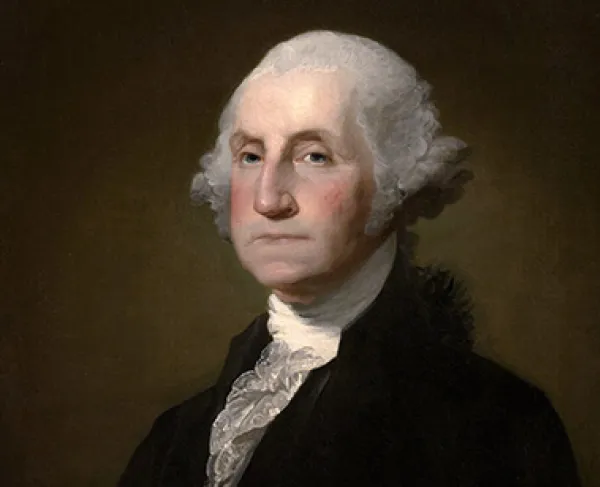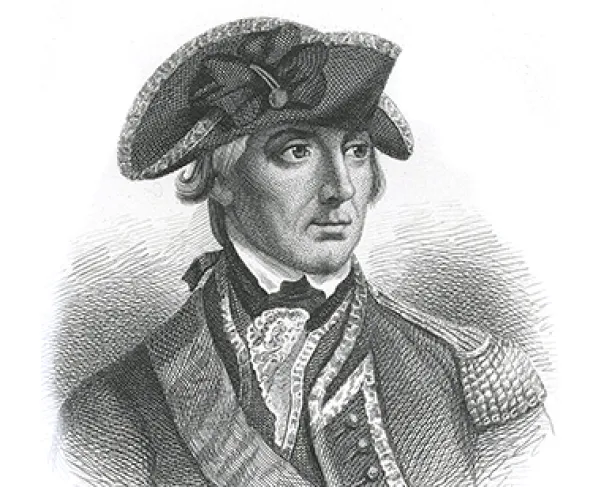
Germantown
Philadelphia | Oct 4, 1777
Following the American defeat at the Battle of Brandywine in September 1777, the British Army captured Philadelphia, the seat of the Continental Congress. After taking the American capital, British General Sir William Howe positioned two brigades under General James Grant and a contingent of Hessians troops commanded by General Wilhelm von Kynphausen in Germantown. The British force in the village totaled 9,000 men.
George Washington, commanding an army of 8,000 Continentals and 3,000 militiamen, sensed an opportunity. He decided to attack and destroy the enemy detachment at Germantown using a double envelopment.
Washington set his plan into motion on the night of October 3. Much like at Trenton, he divided his army so as to attack the British from multiple directions at dawn. General John Sullivan would attack with the main force while General Nathanael Greene attacked on the flank. The militia, under General William Smallwood, would target the British extreme right and rear. Unfortunately for Washington, darkness and a heavy fog delayed the advance and cost him the element of surprise.
Sullivan’s column was the first to make contact, driving back the British pickets on Mount Airy. The British were so shocked to find a large force of American soldiers that some were cut off from the main body; 120 men under British Colonel Musgrave took shelter in the large stone house of Chief Justice Benjamin Chew, known as Cliveden. This fortified position would prove a thorn in the Americans’ side for the remainder of the battle, with numerous assaults being repulsed with heavy casualties. While the fighting around Cliveden raged on, Sullivan pushed his men towards the British center.
On the left, one of Sullivan’s divisions, commanded by General Anthony Wayne, became separated in the fog. To make matters worse, Sullivan’s men were also beginning to run low on ammunition, causing their fire to slacken. The separation, combined with the lack of fire from their comrades and the commotion of the attack on Cliveden behind them, convinced Wayne’s men that they were cut off, causing them to withdraw.
Luckily, Greene’s column arrived in time to engage the British before they could rout Wayne. Unfortunately, one of Greene’s brigades, under General Adam Stephen, also became lost in the fog, mistook Wayne’s men for the British, and opened fire. Wayne’s men returned fire. The resulting firefight caused both units to break and flee the field.
Only the steadfastness of Greene’s and Wayne’s men and the American artillery prevented a disaster. The American retreat was also aided by the onset of darkness. Washington’s Army lost roughly 700 men killed and wounded. Another 400 Americans were captured. The British suffered more than 500 casualties of their own. Despite the British victory, many Europeans, especially the French, were impressed by the continued determination of the Continental Army.
Germantown: Featured Resources
All battles of the Philadelphia Campaign
Related Battles
11,000
9,000
1,111
533














